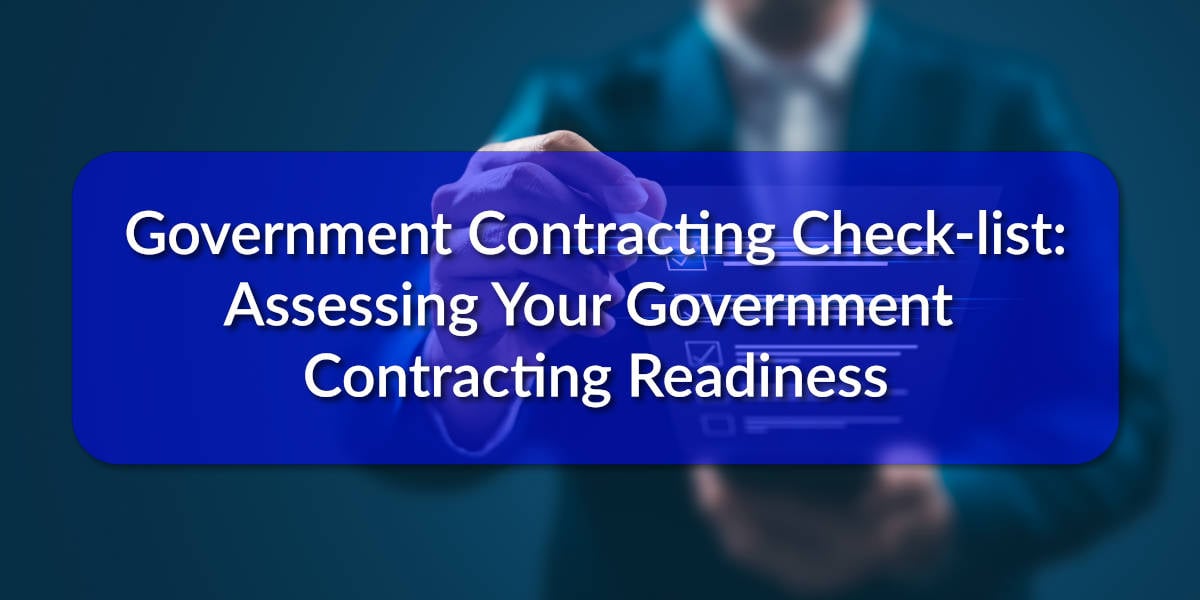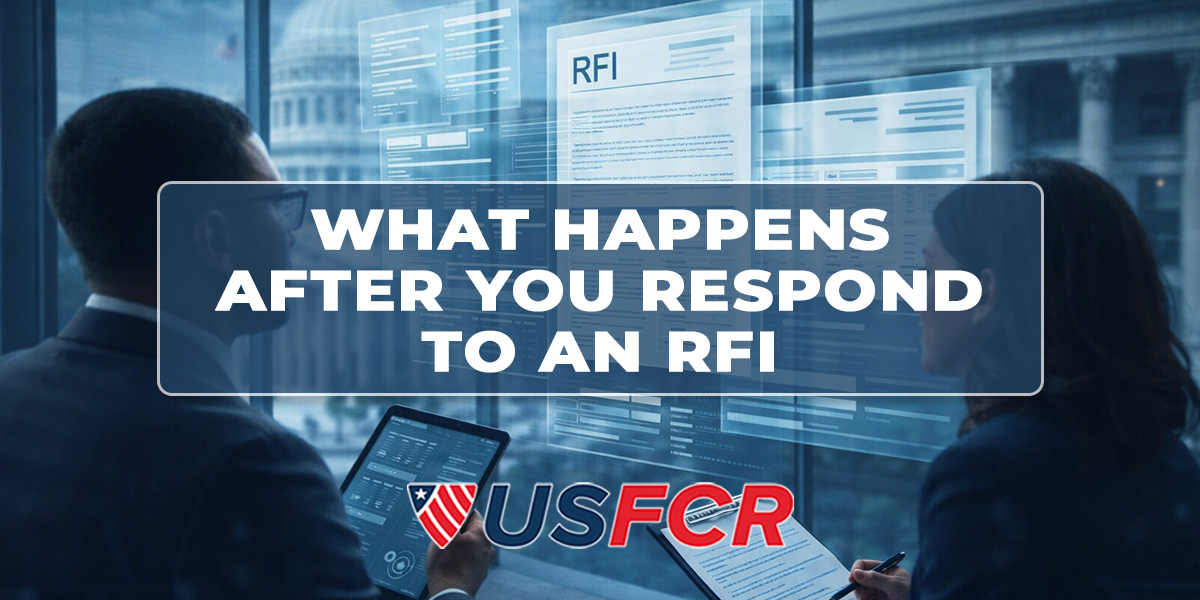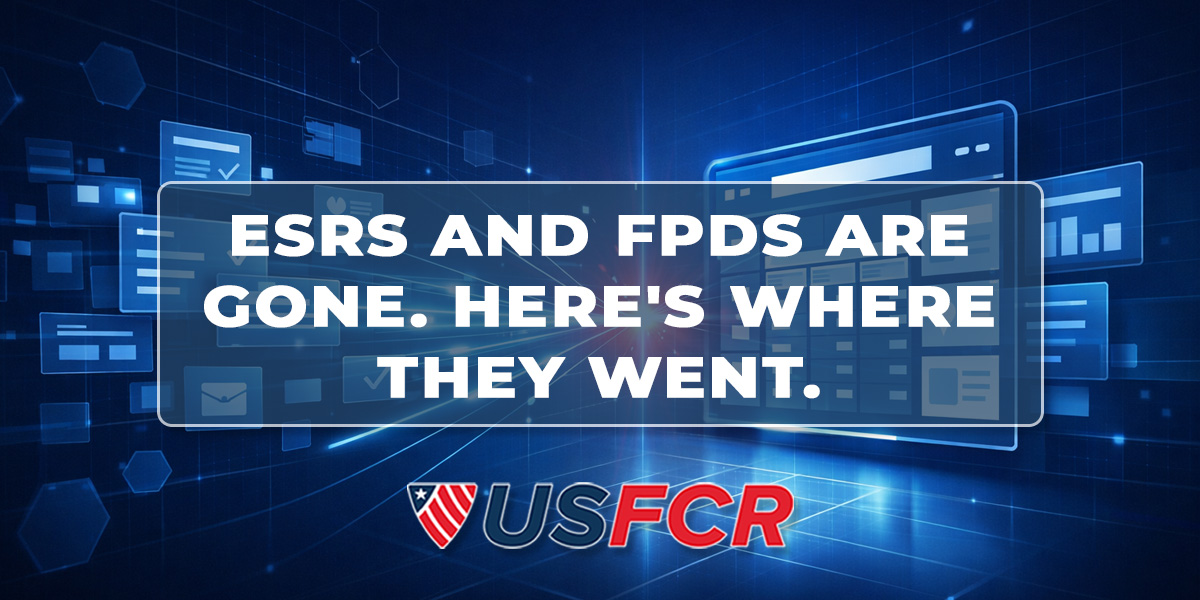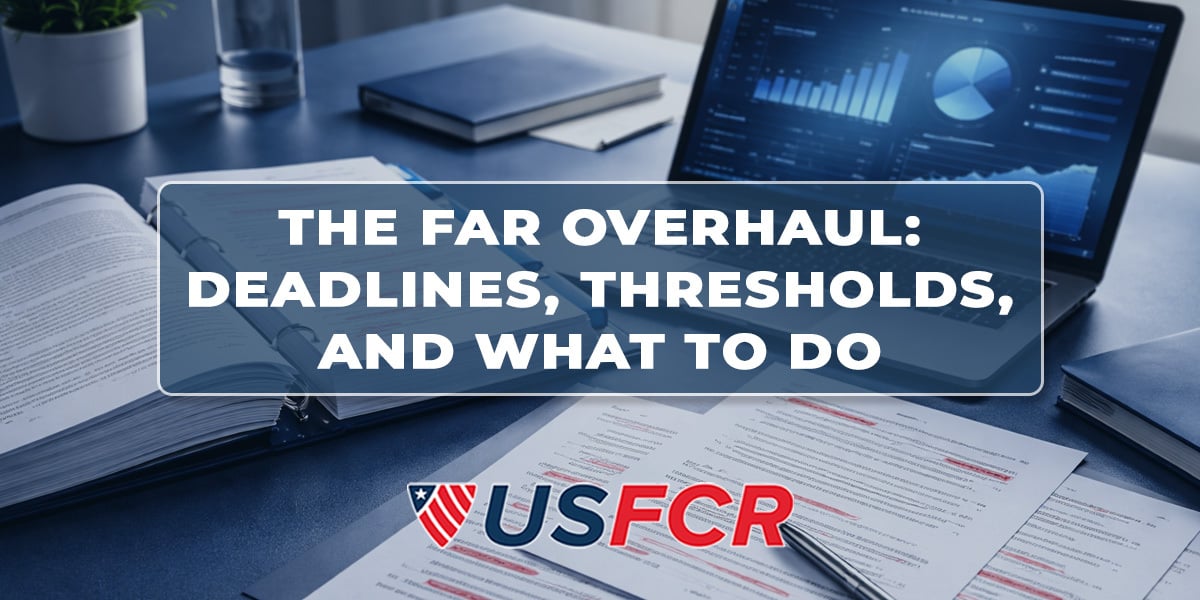Government Contracting Readiness Checklist: Are You Ready to Compete?
Mar 5, 2026 10:30:00 AM / by Kyle Hayes posted in Guides, NAICS, Set-asides, Registration & Compliance Management
What Happens After You Respond to an RFI (And Why Going Quiet Is the Worst Move You Can Make)
Mar 4, 2026 11:47:31 AM / by USFCR posted in USFCR Academy
You found an RFI on SAM.gov. You spent two days pulling together a thoughtful response: your capabilities, your experience, your interest in the requirement. You hit submit.
Top 5 Industries Where WOSB's Are Leading in Federal Contracting
Mar 3, 2026 10:29:59 AM / by Kyle Hayes posted in Guides, NAICS, Set-asides, Industry-Specific Contracting
How GSA Schedule Pricing Changed: What You Need to Know for 2026
Feb 26, 2026 10:30:00 AM / by Kyle Hayes posted in General Services Administration (GSA), Guides, News, Federal Spending
SAM.gov Just Absorbed Two More Federal Systems: What Contractors Need to Know
Feb 25, 2026 10:05:24 AM / by USFCR posted in News, Registration & Compliance Management
If you tried to log into eSRS.gov in the last few days, you already know something changed. The site is gone. And if you use FPDS.gov to research federal contract data, that's shutting down tomorrow.
Changes to the 8(a) Business Development Program in 2026
Feb 24, 2026 10:30:00 AM / by Kyle Hayes posted in Guides, News, Set-asides
If you hold a federal contract or you're planning to bid on one this year, the rules you learned are changing underneath you. Not eventually. Not theoretically. Right now.
The federal government is in the middle of something called the Revolutionary FAR Overhaul. That's the official name. The Federal Acquisition Regulation, the rulebook that governs how the government buys everything, is being rewritten from the ground up. The first wave of changes already took effect on February 1, 2026. More are rolling out every few weeks. And the biggest shifts hit by June 30.
This isn't a minor policy tweak. It's the most significant rewrite of federal buying rules in decades. For small businesses, some of these changes are genuinely good news. Others require immediate attention.
How to Structure Your Business to Be on the Government’s Timeline
Feb 19, 2026 10:30:00 AM / by Kyle Hayes posted in Guides, Registration & Compliance Management
Building Your Government Contracting Team: Who You Actually Need
Feb 17, 2026 10:30:00 AM / by Kyle Hayes posted in Guides, Team, Subcontracting & Teaming
Federal Set-Aside Program Updates for Small Businesses in 2025 to 2026
Feb 12, 2026 10:30:00 AM / by Kyle Hayes posted in Guides, NAICS, Set-asides










